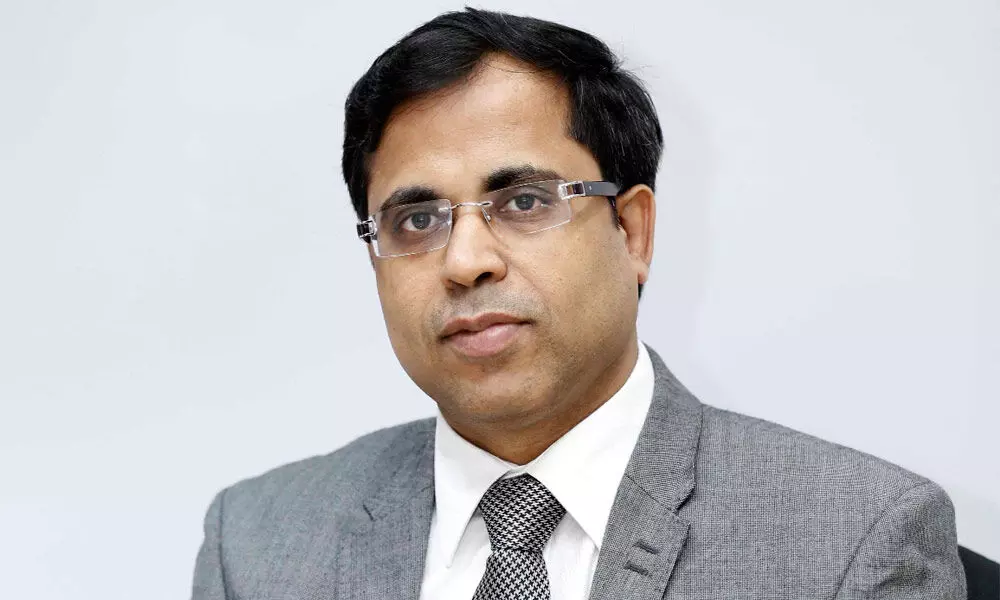Crop insurance not a resource for profit, but social security for economy
Our crop insurance increases 30% in 2020
image for illustrative purpose

At a time when the major players active in the non-life insurance space are reducing their exposure in the crop insurance, private sector general insurer, Bajaj Allianz General Insurance Company (BAGIC) has increased its presence in the segment and has gone ahead of its peers. While BAGIC's exposure to the sector currently stands at Rs1,700 crore, it was Rs1,615 crore for HDFC ERGO, Rs1,605 crore for Reliance General Insurance, Rs1,370 crore for SBI General, Rs 843 crore for Iffco Tokio. When it comes to the largest non-life insurer, New India Assurance, it was having its exposure to the segment at merely Rs 675 crore. In an exclusive interview with Bizz Buzz, Ashish Agarwal, Head Agri. Business & CSC, Bajaj Allianz General Insurance at BAGIC, shares the company's view on the subject.
How much crop biz you have done in the ongoing Kharif season?
At Bajaj Allianz General Insurance, we have done crop insurance business to the tune of close to Rs 1,700 crore during April-September 2020 or Kharif season of the current fiscal. The company had underwritten crop insurance business to the tune of close Rs 1,300 crore in the same period of last financial year, thus showing an increase of around 30 per cent on the front.
Why have you decided to grow your crop book when others are reducing it?
At Bajaj Allianz General Insurance, we have been underwriting business and not just crop insurance, but other lines of business too in sync with our market share in the industry. As of now, our company's market share in the industry stands at close to seven per cent and so is our share in the crop insurance segment too. Because our overall business has increased from last year, there is increase in our crop insurance business too.
Which are the states you have underwritten crop insurance business?
Currently, we are implementing PMFBY and RWBCIS in 51 districts of 5 States namely Maharashtra, Chhattisgarh, Karnataka, Haryana and Rajasthan. As per the latest guidelines issued by the central government, the allocation is for both Kharif and Rabi seasons and for a period of three years starting April 2020.
Is it a profitable business for you?
At Bajaj Allianz General Insurance, we don't look at Crop Insurance as the means to make profit, but as a social security tool that safeguards the backbone of our economy i.e. the farmers in case any damage happens to their crops. Crop insurance is crucial for the upliftment of farmers and helps them recuperate faster in case of any losses. This mass crop insurance scheme also enables increase in penetration of insurance in the rural areas of the country. In terms of underwriting crop insurance business, we look at sustainable areas and have carefully developed our portfolio over the years based on our previous experiences, which has so far worked for us.
Govt recently changed some of the features of PMFBY. How do you evaluate those changes?
Central Government has made certain changes in the Pradhan Mantri Fasal Bima Yojana (PMFBY) scheme, which came in force since the beginning of the current financial year. Earlier, the scheme was mandatory for all the loanee farmers. However, the Government has made it voluntary now, like the case is with non-loanee farmers. Although, this hasn't led to any substantial decrease in the number of farmers insured.
Additionally, insurers were earlier allowed to bid for the scheme in a particular State for a duration of one year only. However, the Government has increased it to three years. This move ensures that there is some sort of stability in the State as both the insurer and the insured get a know-how of the environment. Additionally, the Central Government wants to make use of satellite technology to make crop cutting experiment (CCE) more transparent in terms of loss percentage and claims. At Bajaj Allianz General Insurance, we have already started the process on pilot basis.
I feel that it will take a few years' time to understand the impact of the changes brought by the government in the scheme well.

